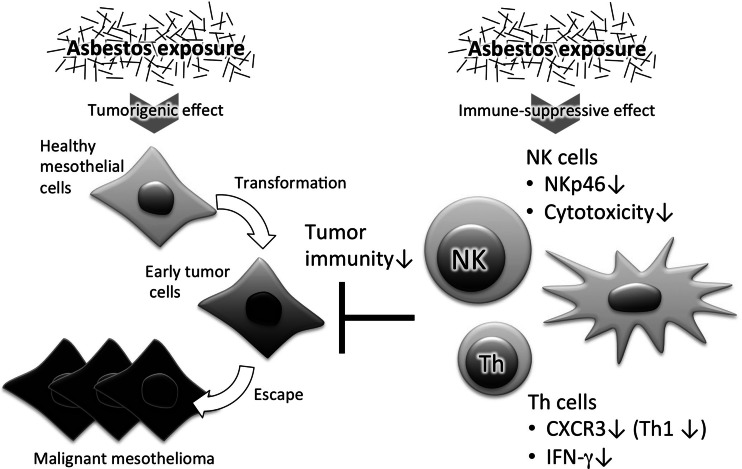Fig. 2.
Immune-suppressive effect of asbestos exposure. The illustration shows that asbestos exposure has the potential to impair the functions of NK and Th cells, in addition to the previous findings concerning the tumorigenic effect of asbestos. As demonstrated by our studies, asbestos exposure causes decreased cytotoxicity of NK cells with alteration in expression of activating receptors. In particular, the decrease in expression of NKp46 is shared among primary NK cells in peripheral blood mononuclear cell (PBMC) culture upon exposure to asbestos and NK cells in the peripheral blood of patients with malignant mesothelioma. Furthermore, our studies demonstrated decreases in CXCR3 expression and interferon-gamma (IFN-γ) production by Th cells upon exposure to asbestos, which was also observed in mesothelioma patients. Our findings suggest that these immune-suppressive effects of asbestos exposure might allow early tumor cells to escape from tumor immunity, leading to development of malignant mesothelioma in people exposed to asbestos

